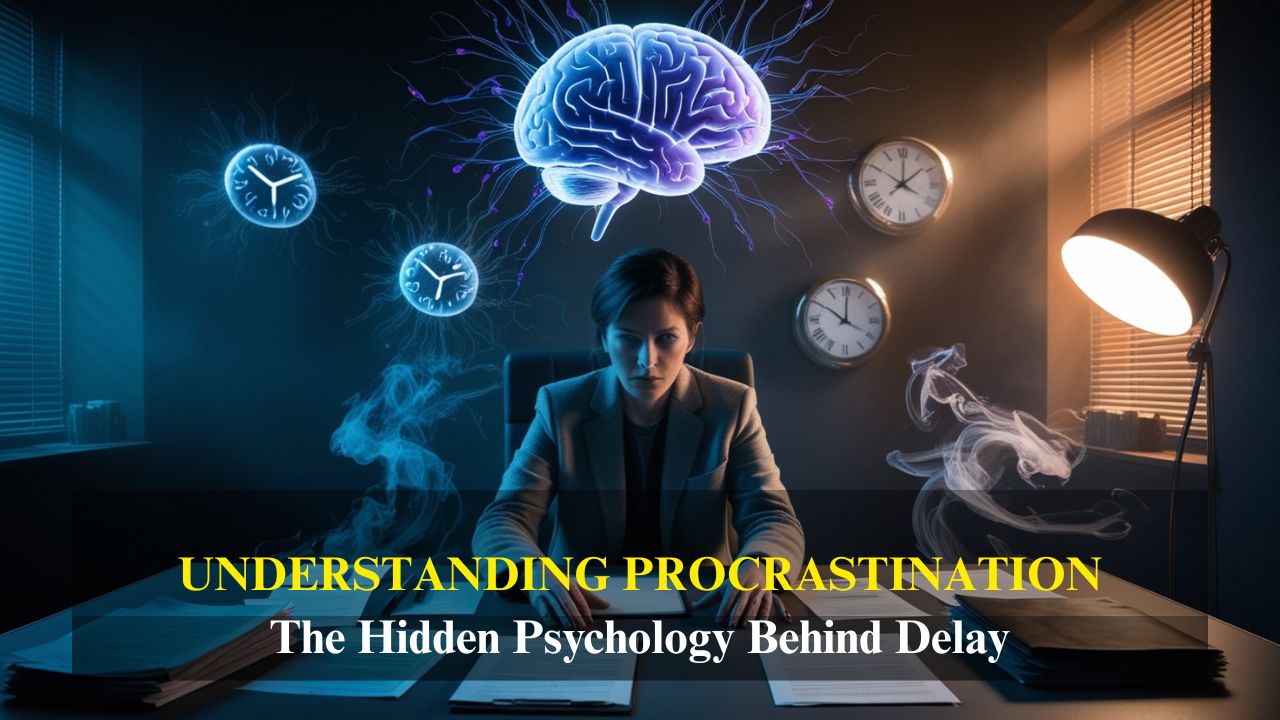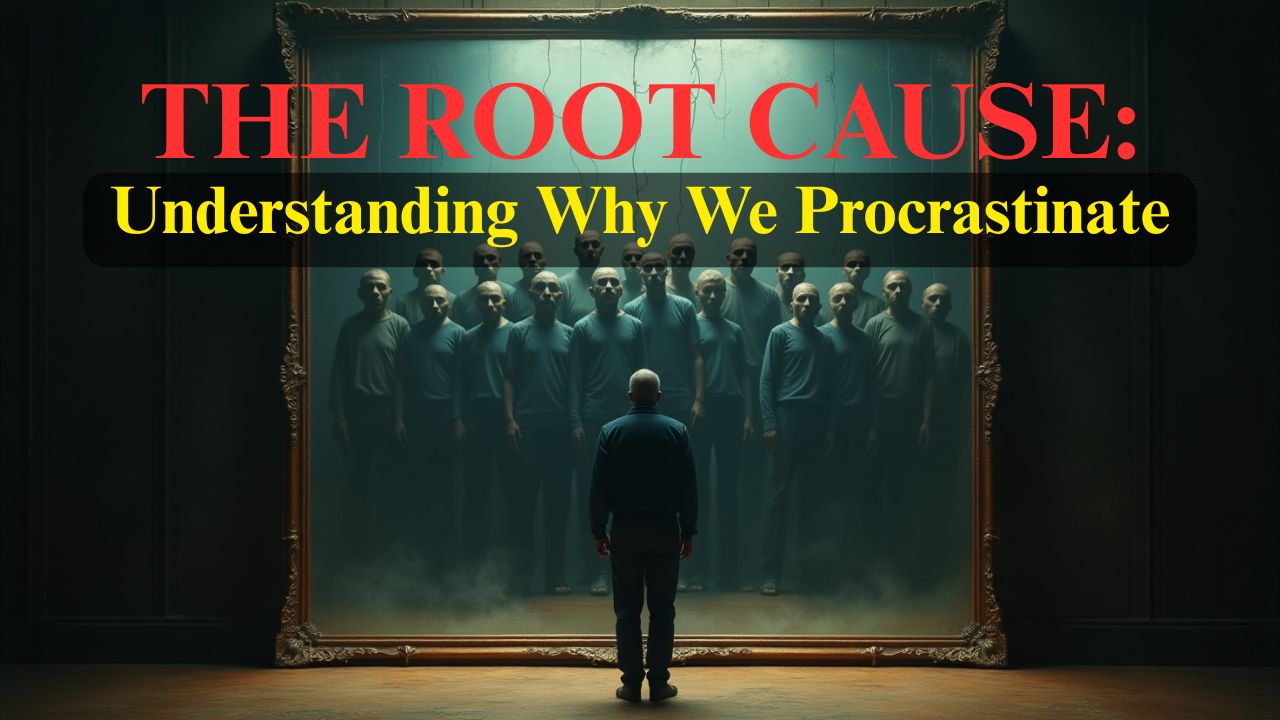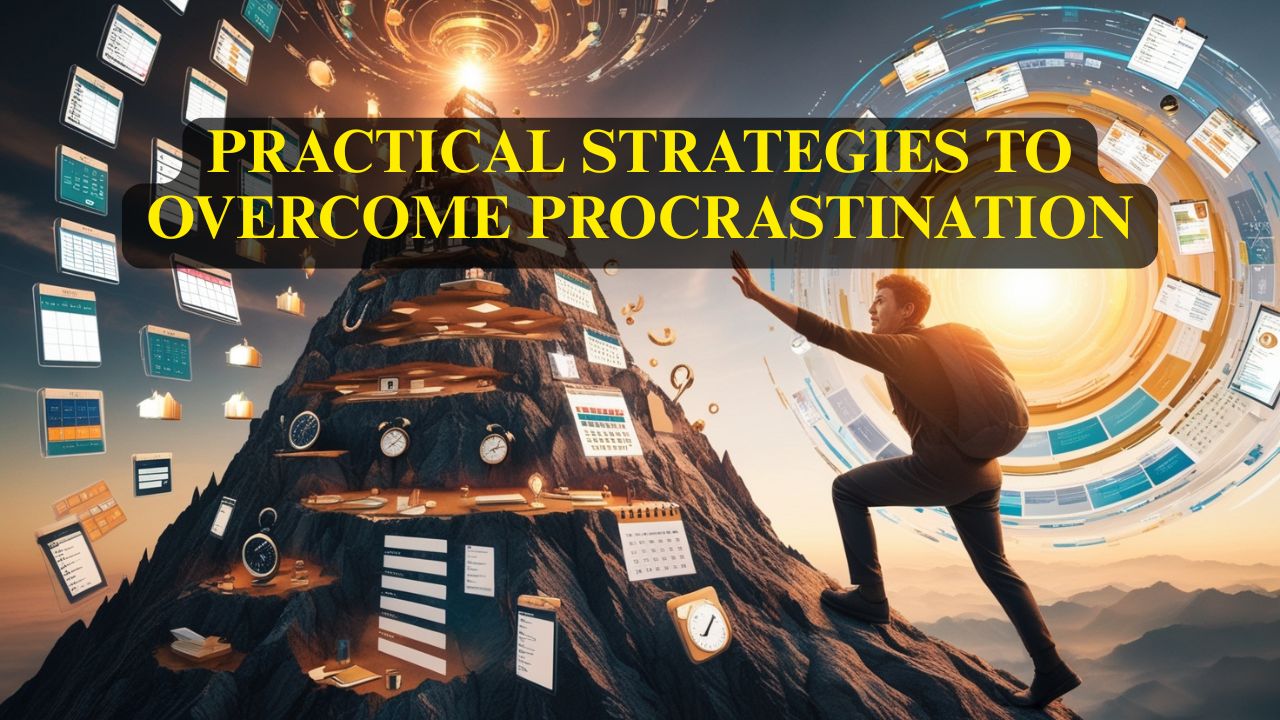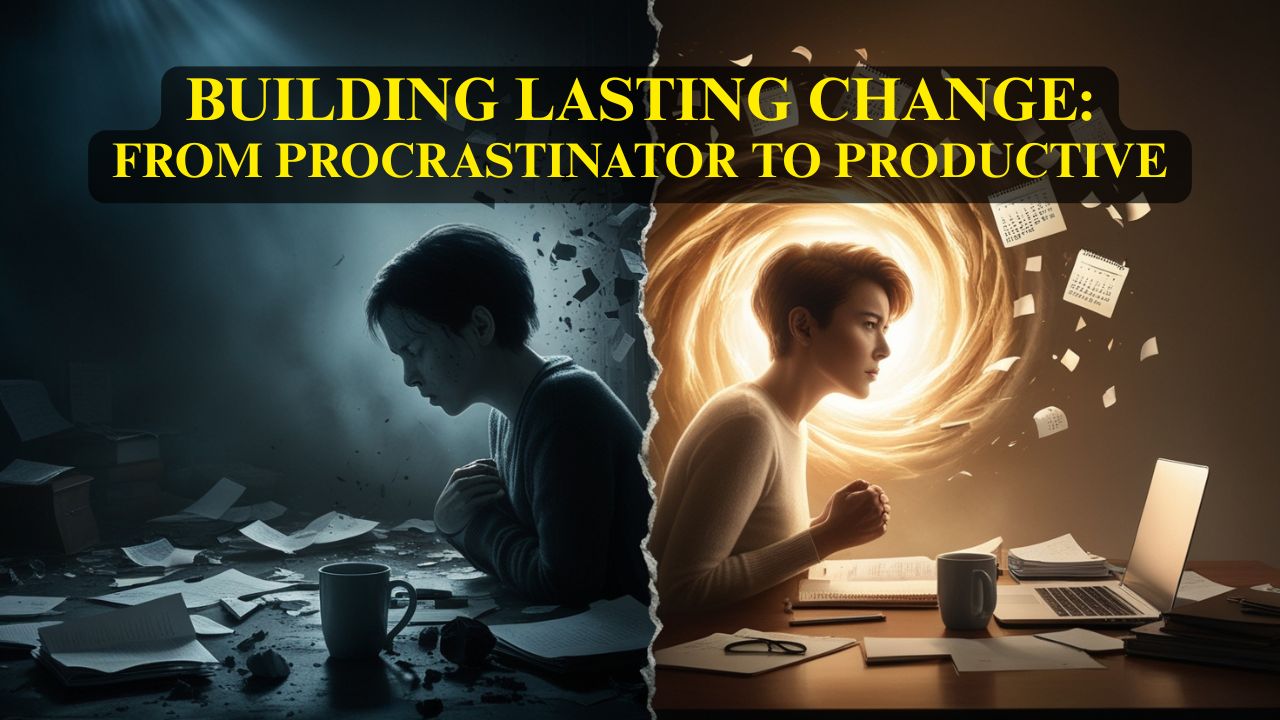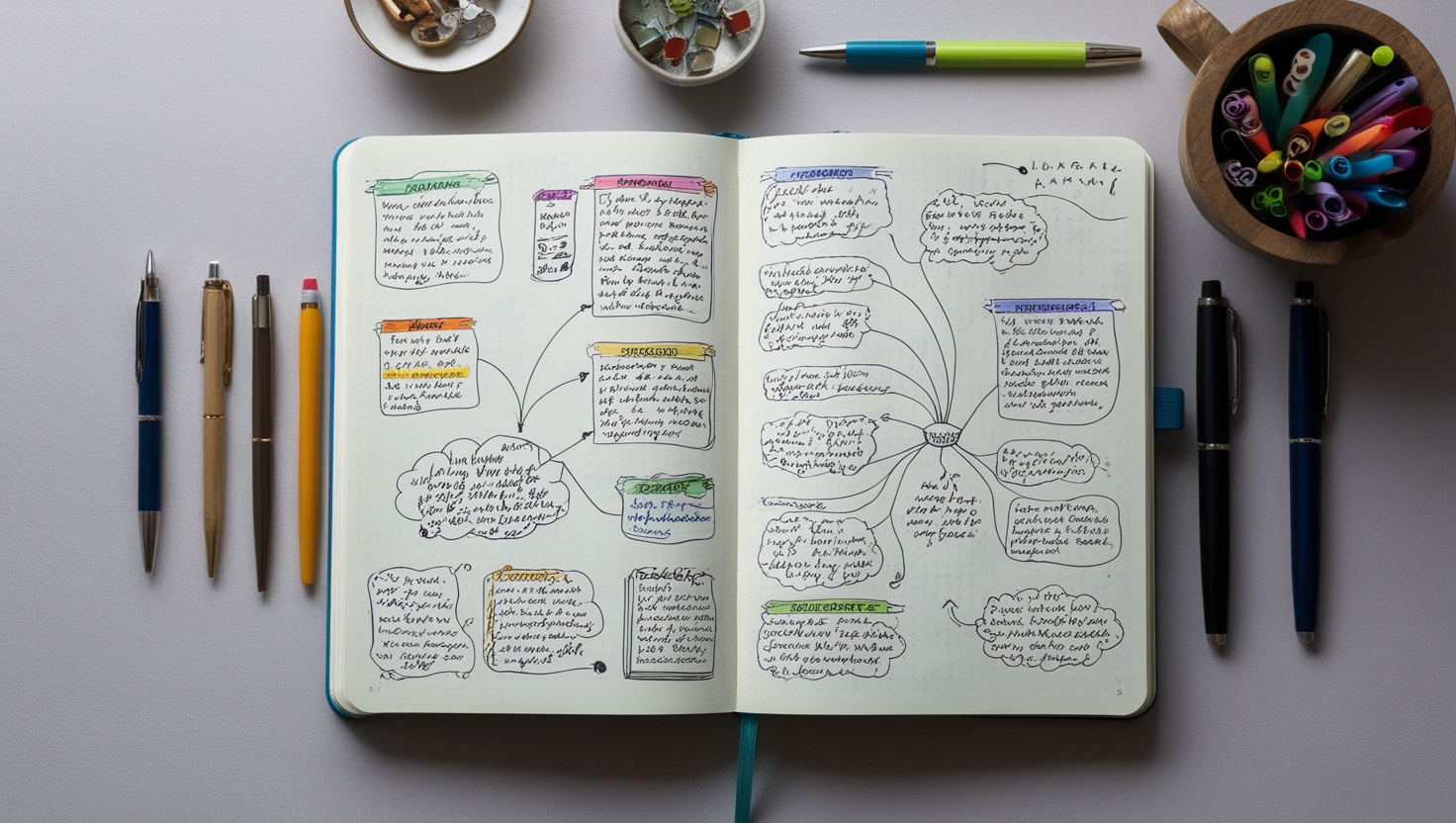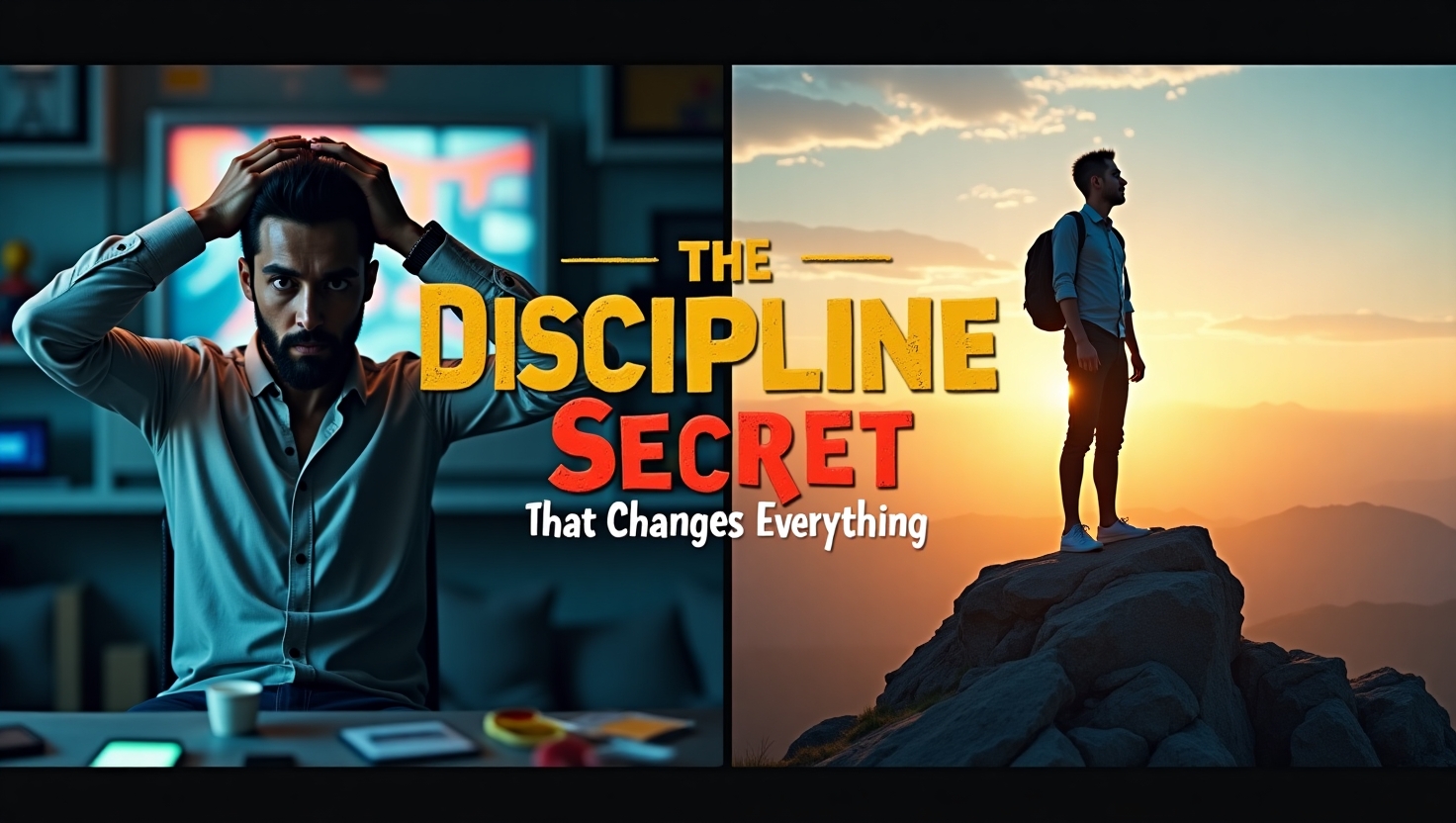- Latest Articles
- The Power Of Thought
- The Power of Thought 1
- The Art of Self Discipine
- The Secret of The Ages: Ancient Wealth Mysteries Finally Revealed
- Procrastination
- Habits
- The Tyranny of Tomorrow

The Greatest Weapon Against Stress
Human life, in all its complexity, pivots on a simple yet profound truth: thought shapes destiny. The mind is a remarkable architect, capable of designing lives of purpose, abundance, and achievement—or, if neglected, of confusion and despair.
Read More >
THE HIDDEN POWER OF THOUGHT
Read More >
IT IS THE MARK OF AN EDUCATED...
Read More >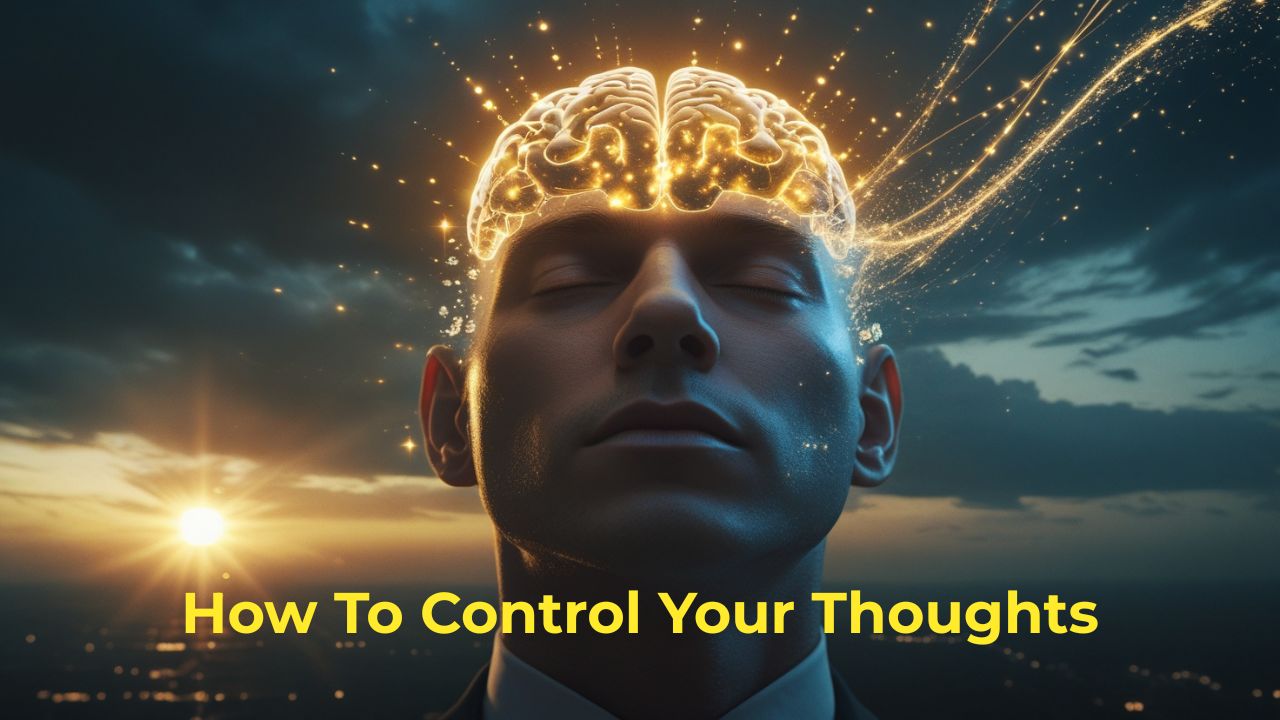
HOW TO CONTROL THOUGHTS
Read More >
IT TAKES ONE POSITIVE...
Read More >
The Hidden Forces Controlling Your Life
Right now, as you're reading this, your brain is running on autopilot for dozens of decisions. You didn't consciously decide how to hold this device, which eye to start reading with, or how to balance your body in your chair. .
Read More >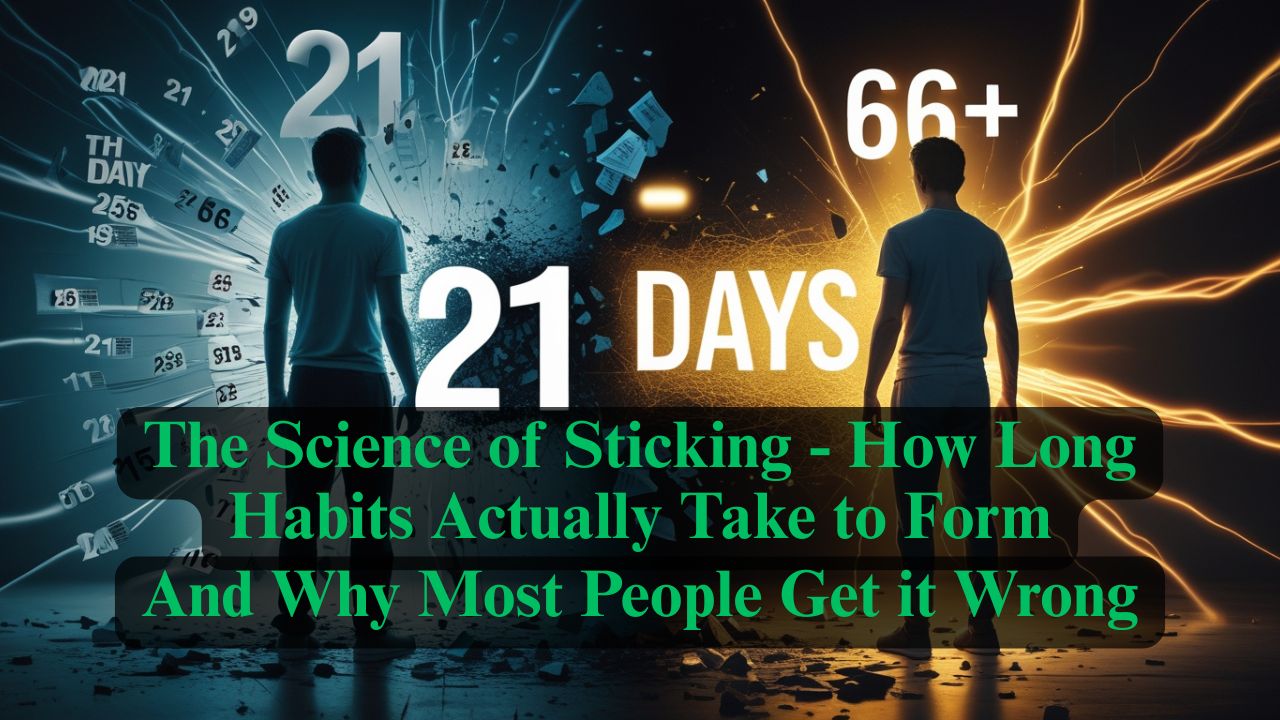
THE SCIENCE OF STICKING...
Read More >
THE STACKING STRATEGY - HOW TO BUILD NEW HABITS BY HIJACKING OLD ONES
Read More >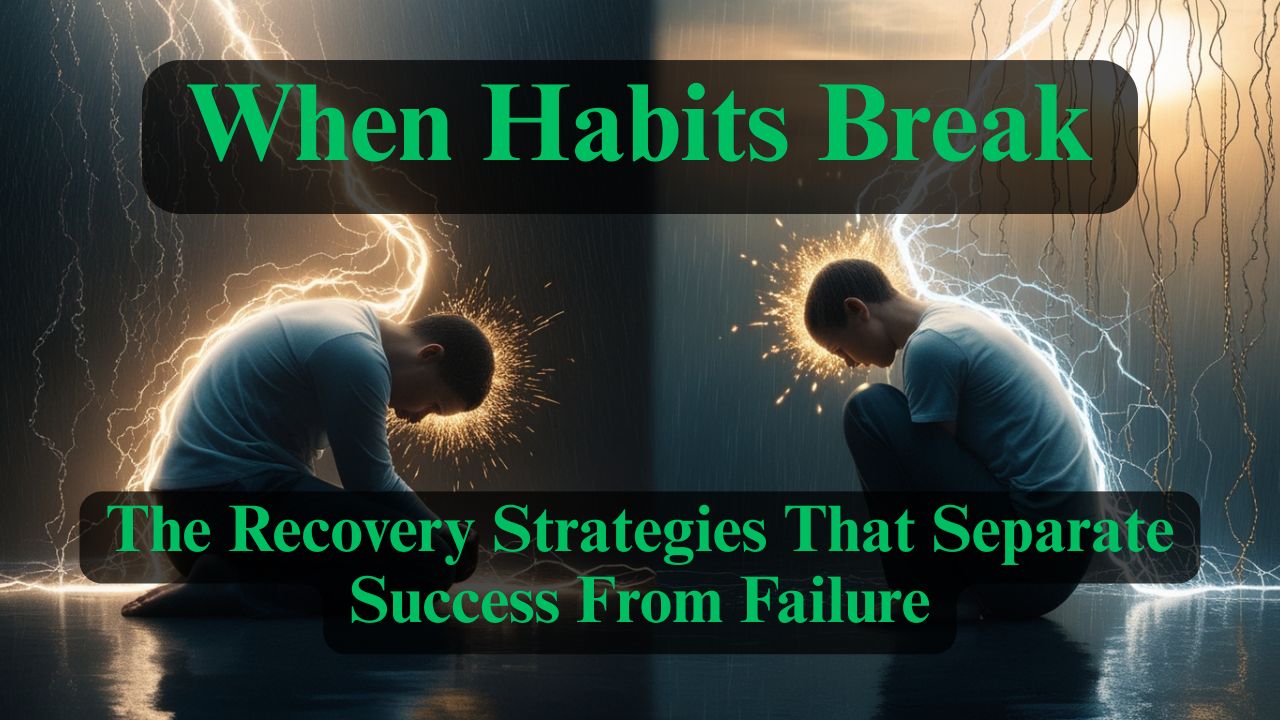
WHEN HABITS BREAK - THE RECOVERY STRATEGIES THAT SEPARATE SUCCESS FROM FAILURE
Read More >
THE ULTIMATE SYSTEM - DESIGNING A LIFE WHERE GOOD HABITS ARE INEVITABLE
Read More >The Tyranny of Tomorrow: Why We're Missing Life While Planning It
There's a profound irony in human existence that the 17th-century philosopher Blaise Pascal captured with startling clarity: we spend our lives everywhere except where we actually are. His observation cuts to the heart of a universal human tendency that has only intensified in our hyperconnected age.
Pascal noticed something peculiar about the human mind—it seems almost allergic to the present moment. Instead, we live as mental time travelers, constantly shuttling between memories of yesterday and fantasies of tomorrow. We replay past conversations, analyzing what we should have said differently. We rehearse future scenarios, planning our next move, our next purchase, our next relationship milestone.
This temporal displacement isn't merely a quirk of consciousness; it's a fundamental barrier to fulfillment. When we examine our thoughts honestly, we discover that the present moment serves merely as a launching pad for our mental excursions into other times. Even when we do acknowledge the present, it's typically to extract information useful for future planning—like checking the weather to decide what to wear tomorrow or noting traffic patterns to optimize our commute.
The tragedy Pascal identifies is that life happens in the present, but we're rarely there to experience it. We're like tourists in our own existence, so busy taking photos and planning the next destination that we forget to actually see where we are. The warmth of sunlight on our skin, the taste of morning coffee, the genuine laugh of a friend—these moments of actual living slip by unnoticed while we're busy orchestrating our imagined future happiness.
This pattern creates a perpetual state of postponement. Happiness becomes something we're always approaching but never reaching, like a horizon that recedes as we move toward it. We tell ourselves we'll be happy when we get the promotion, when we find the right partner, when we buy the house, when we retire. But when those moments arrive, we're already focused on the next milestone, the next achievement, the next reason to delay contentment.
The modern world has weaponized this tendency. Social media feeds us endless streams of curated futures to envy and past moments to regret. News cycles keep us anxious about what might happen. Consumer culture promises happiness through the next purchase. We're surrounded by systems designed to keep us mentally anywhere but here, now.
Pascal's insight reveals why so many people report feeling like life is passing them by, despite being busier than ever. We're not actually living our lives; we're managing them, optimizing them, preparing for them. We've become the directors of a movie we're too busy making to watch.
The philosopher's observation isn't meant to discourage planning or learning from the past—both are necessary for a well-lived life. Rather, it's a warning about the extremes to which we've taken this natural human capacity. When every present moment becomes merely a stepping stone to somewhere else, we lose touch with the only time in which life actually occurs.
Breaking free from this pattern requires recognizing that the present moment isn't empty time waiting to be filled with future plans. It's the only time we have, the only time we've ever had, and the only time we'll ever have. Everything else—all our memories, all our dreams—exists only in the eternal now of consciousness.
The path forward isn't to abandon all planning or reflection, but to restore balance. To remember that while we may plan for the future and learn from the past, we live in the present. And perhaps most importantly, to understand that happiness isn't a destination we're traveling toward, but a way of traveling itself.
In our age of constant connectivity and endless options, Pascal's 400-year-old insight feels more relevant than ever. The art of living isn't about perfecting our plans for tomorrow—it's about showing up for today.
What Pascal Really Meant (In Simple Terms)
Now, let me translate this philosophical wisdom into plain English and give you practical ways to actually apply it to your daily life.
Imagine you're at a beautiful concert, but instead of listening to the music, you're scrolling through your phone looking at photos from last week's party while simultaneously planning what you'll do after the show. That's basically what Pascal noticed we do with our entire lives.
He's saying: "Hey, look at your thoughts right now. I bet you're either thinking about something that already happened or something that might happen later. You're almost never actually focused on what's happening RIGHT NOW."
And here's the kicker—life is only happening right now. The past is just memories, and the future is just imagination. But we're so busy living in our heads that we miss our actual lives.
It's like being hungry and spending all your time reading restaurant reviews and planning elaborate meals for next week, but never actually eating the food that's right in front of you.
Your Step-by-Step Action Plan
Here's how to start breaking this pattern and actually start living in the present:
Week 1: Become a Thought Detective
Action: Set three random alarms on your phone each day. When they go off, stop and ask yourself: "What was I just thinking about?" Write it down—past, present, or future?
Why this works: You can't change what you're not aware of. Most of us don't realize how much we live in our heads until we start paying attention.
Week 2: Practice the "5-4-3-2-1" Technique
Action: When you catch yourself spiraling into past regrets or future worries, use your senses to anchor yourself in the present:
- Name 5 things you can see
- 4 things you can touch
- 3 things you can hear
- 2 things you can smell
- 1 thing you can taste
Why this works: Your senses only work in the present moment. They're like a bridge back to now.
Week 3: Create "Present Moment Rituals"
Action: Pick three daily activities (like brushing your teeth, drinking your morning coffee, or walking to your car) and commit to doing them with full attention. No phone, no planning, no mental to-do lists.
Why this works: These become anchors throughout your day—regular returns to the present moment.
Week 4: The "Good Enough" Rule
Action: When you catch yourself over-planning or trying to perfect future scenarios, ask: "Is this plan good enough for now?" If yes, stop planning and do something that grounds you in the present.
Why this works: Perfect plans are impossible anyway, and over-planning is often just anxiety dressed up as productivity.
Week 5: Practice "Savoring"
Action: Once a day, deliberately slow down and fully experience something pleasant—really taste your lunch, feel the warm water in your shower, notice how comfortable your bed is.
Why this works: This trains your brain to find satisfaction in present moments rather than always looking ahead for the next source of happiness.
Week 6: The "Done List"
Action: At the end of each day, instead of making a to-do list for tomorrow, write down three things you actually experienced today. Not accomplished—experienced.
Why this works: This rewires your brain to value present-moment experiences, not just future achievements.
The Real Secret
Here's what Pascal understood that most people miss: happiness isn't something you achieve or reach—it's something you practice. It's not waiting for you in the future; it's available right now, in this moment, through the simple act of paying attention to what's actually happening.
You don't need to change your life dramatically. You just need to start showing up for the life you already have. Because the truth is, this moment—right now, as you're reading this—is your actual life. Everything else is just stories you tell yourself about it.
Start with just one week of the first exercise. See what you notice. I bet you'll be surprised by how much of your mental energy is spent everywhere except where you actually are. The journey from constantly planning happiness to actually experiencing it begins with this simple recognition: the life you're looking for isn't somewhere else—it's right here, right now, waiting for you to notice it.
- Audio Articles
- Audio Articles 1
- Audio Articles 2
- Audio Articles 3
- Audio Articles 4
- Rise And Conquer
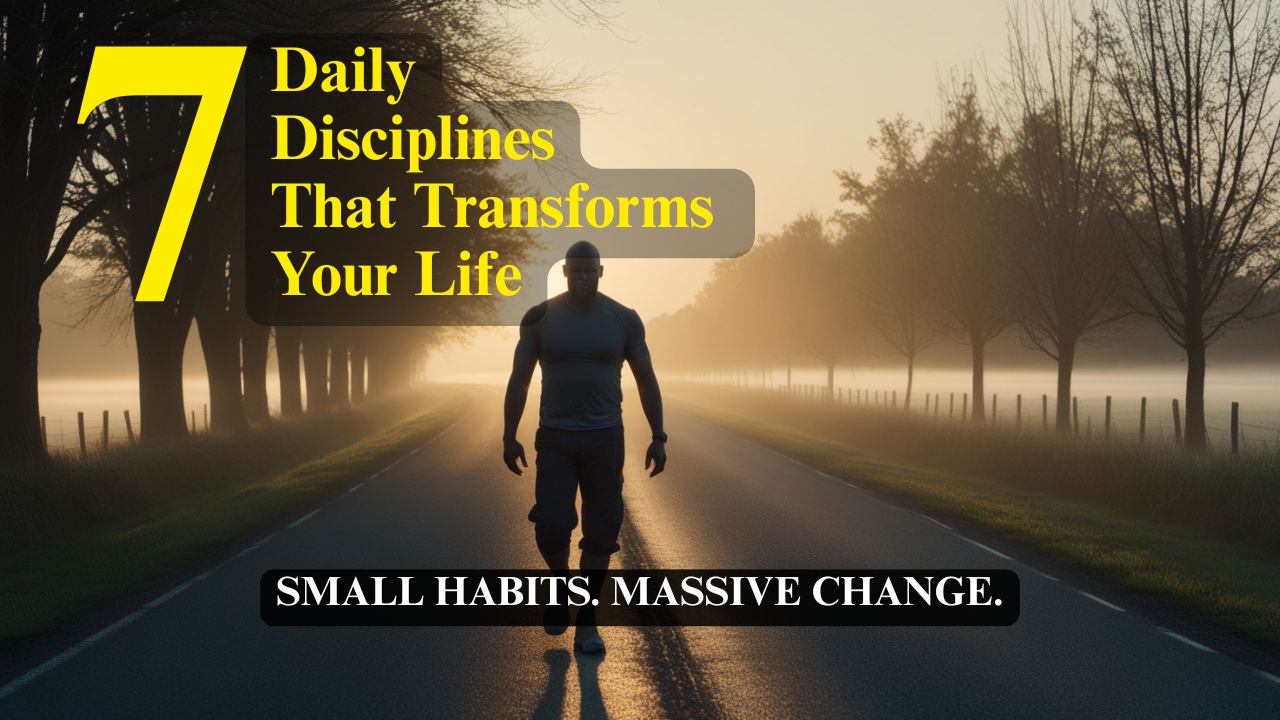
7 Daily Disciplines That Transform Your Life
The power to act with intention, to align your actions with your values, and to move steadily toward a life of purpose—even on days you don't feel like it.
Read Full Article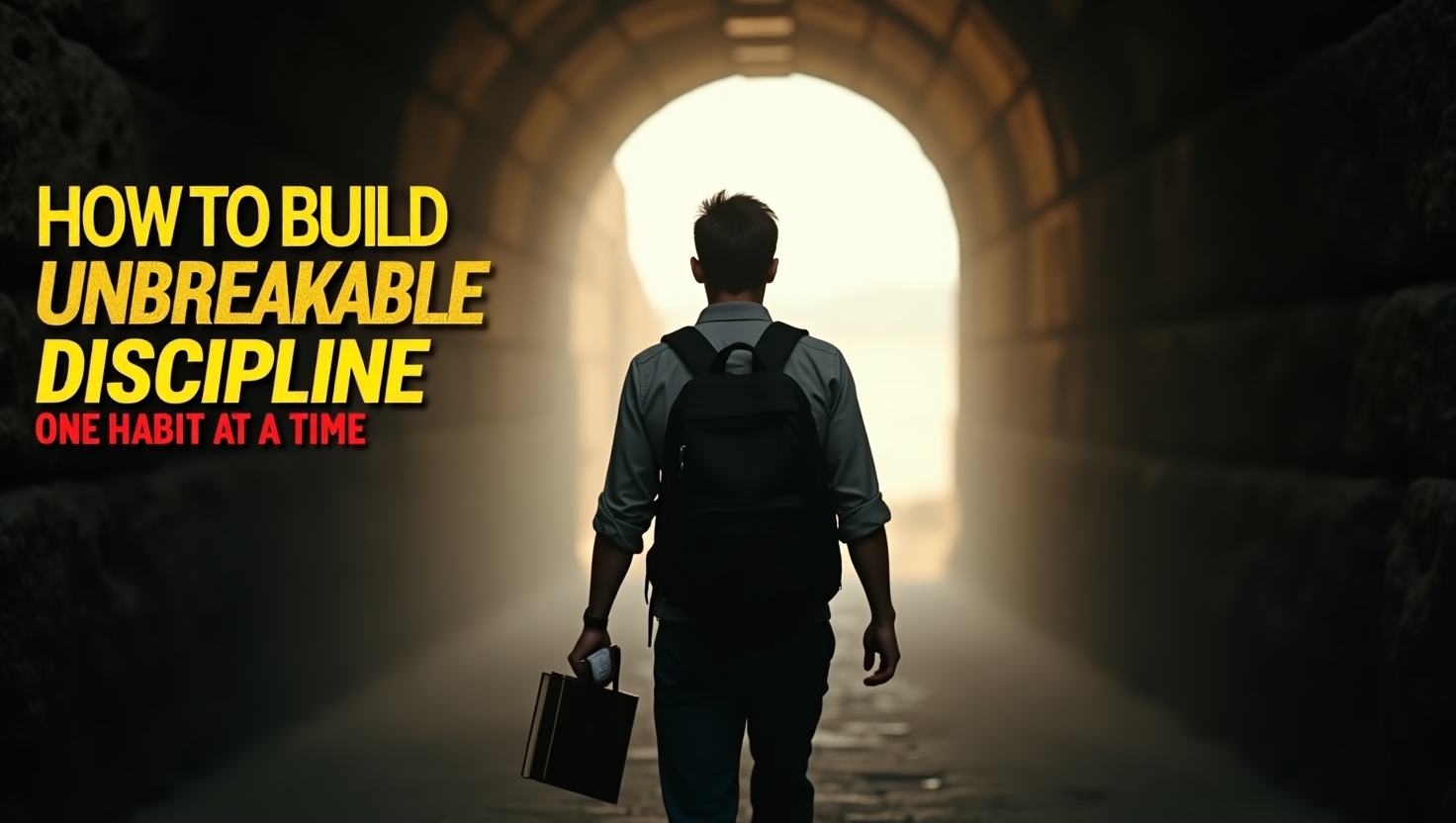
How to Build Unbreakable Discipline
Discipline is built—habit by habit, choice by choice, day by day. And the most powerful kind? The kind that doesn’t crack under pressure. The kind that becomes part of who you are.
Read Full Article
Why Motivation Fails And Discipline Wins Every Time
We all love the feeling of motivation—that surge of energy, that rush of inspiration that makes everything seem possible. But here’s the problem: motivation is unreliable. It’s emotional. It comes and goes. And if your goals rely on you “feeling like it,” you’re already in trouble.
Read Full Article
Discipline Over Desire
Desire is loud. It burns bright, talks fast, and loves to dream. But desire alone doesn't achieve much. Every person has desires. Very few have the discipline to bring them to life.
Read Full Article
The Science of Sticking
If you've ever tried to build a new habit, you've probably heard that it takes 21 days. This number gets thrown around so often that it feels like scientific fact.
Read Full Article
The Stacking Strategy
What if I told you that the habits you already have—even the ones you consider "bad"—could become the secret weapons for building the habits you want?
Read Full Article
When Habits Fail - The Recovery Strategies That Separate Success From Failure
Here's what nobody tells you about building habits: you will fail. You'll miss days. You'll fall off track. You'll have weeks where everything falls apart.
Read Full Article
The Ultimate System - Designing a Life Where Good Habits Are Inevitable
You've learned to recognize habits, understand their formation timeline, stack them strategically, and recover from setbacks.
Read Full ArticleA Guide to Bullet Journaling: Transforming a Blank Journal into a Productivity Powerhouse
A bullet journal is more than just a notebook; it’s a versatile tool that can help you organize your life, track your goals, and foster creativity. Starting with a blank journal may feel overwhelming, but with the right ideas and strategies, you can create a system tailored to your needs and preferences.
This guide will walk you through the basics of bullet journaling and suggest practical ideas to make your journal both functional and inspiring.
---
What is Bullet Journaling?
Bullet journaling is a method of personal organization created by Ryder Carroll. It combines elements of a planner, diary, and to-do list into a customizable system. The beauty of a bullet journal lies in its flexibility—you decide what to include and how to format it.
---
Essential Supplies
Here’s what you need to get started:
- **A blank journal**: Dot grid journals are popular for their versatility, but lined or plain notebooks work just as well.
- **Pens and markers**: Invest in high-quality pens that don’t bleed through the pages.
- **Ruler**: Useful for creating straight lines and clean layouts.
- **Optional embellishments**: Washi tape, stickers, and colored pencils can add a creative touch.
---
Setting Up Your Bullet Journal
1. **Create an Index**
Dedicate the first few pages to an index. This will help you quickly find sections or important entries.
2. **Add a Key**
Design a key for symbols you’ll use throughout your journal. For example:
- Task: ○ (open circle)
- Completed Task: ✓ (checkmark)
- Event: □ (open square)
- Priority: ★ (star)
3. **Monthly Overview**
Create a spread to outline your month. Include important dates, goals, and tasks.
4. **Weekly or Daily Logs**
Plan your week or days in detail. Include tasks, appointments, and notes.
---
Ideas for Your Bullet Journal
**1. Habit Tracker**
Monitor daily habits such as exercise, hydration, meditation, or reading. Use a grid layout to track your progress over the month.
**2. Goal Setting**
Dedicate a section to your short-term and long-term goals. Break them into actionable steps and track your progress.
**3. Gratitude Log**
Write down things you’re grateful for each day. This practice fosters positivity and mindfulness.
**4. Mood Tracker**
Use colors or symbols to record your mood each day. This can help you identify patterns and triggers.
**5. Meal Planner**
Plan your weekly meals and grocery lists. This helps save time and reduces food waste.
**6. Finance Tracker**
Keep track of your income, expenses, and savings goals. A simple monthly budget layout can help you stay on top of your finances.
**7. Brain Dump**
Reserve a page for a brain dump where you can jot down random ideas, thoughts, or reminders.
**8. Books to Read and Movies to Watch**
Create a list of books, movies, or TV shows you want to explore. Check them off as you complete them.
**9. Travel Plans**
Design a travel spread to plan upcoming trips. Include destinations, itineraries, packing lists, and budget details.
**10. Inspirational Quotes**
Dedicate a page to uplifting quotes or mantras. Refer to it for motivation when needed.
**11. Project Tracker**
Track the progress of personal or professional projects. Break tasks into milestones and record deadlines.
**12. Health and Fitness Log**
Record workouts, water intake, and health milestones. Include notes on how you’re feeling physically and mentally.
**13. Creative Pages**
- **Doodles and Sketches**: Use blank pages to express your artistic side.
- **Vision Board**: Paste images and words that represent your goals.
**14. Learning Tracker**
Track new skills or courses you’re working on. Note key takeaways and progress.
---
Tips for Success
- **Start simple**: Avoid overwhelming yourself with too many layouts or sections initially.
- **Be consistent**: Set aside a regular time to update your journal.
- **Adapt as needed**: Change layouts or add sections to suit your evolving needs.
- **Make it yours**: Personalize your journal to reflect your personality and interests.
---
Conclusion
A bullet journal is a powerful tool for staying organized, fostering creativity, and achieving your goals. Whether you use it for productivity, self-reflection, or planning, the possibilities are endless. Start with a blank journal, incorporate these ideas, and watch as it transforms into a system that works uniquely for you.
